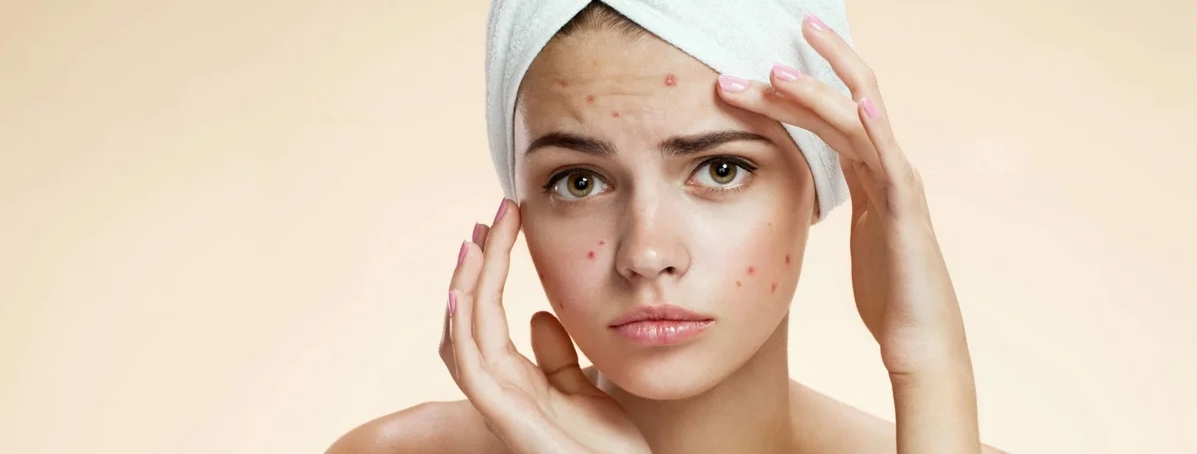Riyadh, with its challenging climate, can present unique skincare concerns, including the persistent issue of pimples, or acne. While various treatments exist, chemical peels have gained popularity in Riyadh's skincare clinics for their effectiveness in combating acne and improving overall skin health. This article delves into the world of chemical peels for pimple treatment in Riyadh, exploring their benefits, types, and what to expect during the process. Looking for the best pimples treatment in Riyadh? Explore top clinics offering advanced solutions for clear skin!
Understanding Acne and the Role of Chemical Peels:
Acne is a multifactorial skin condition involving sebum overproduction, clogged pores due to dead skin cells, bacterial growth (specifically P. acnes), and inflammation. Riyadh's climate, with its heat and sometimes humidity, can exacerbate these factors. Chemical peels offer a solution by exfoliating the outer layers of the skin, revealing a smoother, clearer complexion underneath. They work by:

- Unclogging Pores: Peels remove dead skin cells that contribute to pore blockage, a primary cause of acne.
- Reducing Inflammation: Certain peels contain ingredients that soothe inflammation associated with acne.
- Controlling Sebum Production: Some peels can help regulate sebum production, minimizing oiliness that leads to breakouts.
- Improving Skin Texture: By promoting cell turnover, peels improve skin texture and reduce the appearance of acne scars.
Types of Chemical Peels for Pimple Treatment in Riyadh:
Skincare clinics in Riyadh offer various chemical peels tailored to different skin types and acne severity:
- Salicylic Acid Peels: Salicylic acid is a beta-hydroxy acid (BHA) known for its ability to penetrate pores and dissolve oil and debris. It's particularly effective for comedonal acne (blackheads and whiteheads) and mild to moderate inflammatory acne.
- Glycolic Acid Peels: Glycolic acid is an alpha-hydroxy acid (AHA) derived from sugarcane. It exfoliates the skin's surface, promoting cell turnover and improving skin texture. Glycolic peels are suitable for mild acne and can also address hyperpigmentation and fine lines.
- Lactic Acid Peels: Lactic acid is another AHA, gentler than glycolic acid, making it suitable for sensitive skin. It provides mild exfoliation and hydration, improving skin texture and reducing mild acne.
- Mandelic Acid Peels: Derived from almonds, mandelic acid is a gentler AHA with anti-inflammatory and antibacterial properties. It's effective for mild to moderate acne, particularly for those with sensitive skin or rosacea.
- TCA Peels (Trichloroacetic Acid): TCA peels are medium-depth peels that can address more severe acne, acne scarring, and hyperpigmentation. They require careful application by experienced professionals due to their potency.
- Jessner's Peel: This peel combines salicylic acid, lactic acid, and resorcinol. It's a medium-depth peel effective for treating acne, hyperpigmentation, and sun damage.
The Chemical Peel Procedure in Riyadh Clinics:
The chemical peel procedure typically involves these steps:
- Consultation: A thorough consultation with a dermatologist or skincare specialist is crucial to assess your skin type, acne severity, and determine the most suitable peel.
- Skin Preparation: The skin is cleansed to remove makeup and oil.
- Application of the Peel: The chemical solution is applied evenly to the skin, avoiding sensitive areas like the eyes and mouth.
- Neutralization: Some peels require neutralization after a specific time.
- Post-Peel Care: After the peel, a soothing moisturizer and sunscreen are applied. Specific post-peel instructions will be provided, including avoiding sun exposure and using gentle skincare products.
Benefits of Chemical Peels for Pimple Treatment:
- Targeted Treatment: Peels address specific acne concerns, such as clogged pores, inflammation, and sebum production.
- Improved Skin Texture: Peels promote cell turnover, resulting in smoother, more even skin texture.
- Reduced Acne Scarring: Certain peels can help minimize the appearance of acne scars.
- Enhanced Product Absorption: By removing the outer layer of dead skin cells, peels can improve the absorption of other skincare products.
- Minimal Downtime: Many peels require minimal downtime, allowing you to resume your daily activities quickly.
Choosing a Clinic in Riyadh for Chemical Peels:
When selecting a clinic for chemical peels in Riyadh, consider the following:
- Dermatologist Expertise: Ensure the clinic has experienced and board-certified dermatologists specializing in chemical peels.
- Range of Peels: The clinic should offer a variety of peels to cater to different skin types and acne concerns.
- Hygiene and Safety: The clinic should adhere to strict hygiene and safety protocols.
- Client Reviews: Read online reviews and testimonials from previous clients.
- Consultation Process: A thorough consultation is essential to determine the best peel for your needs.
Aftercare and Considerations:
- Sun Protection: Sun protection is crucial after a chemical peel. Use a broad-spectrum sunscreen with a high SPF daily.
- Gentle Skincare: Avoid harsh scrubs or exfoliants after a peel. Use gentle cleansers and moisturizers.
- Avoid Picking: Refrain from picking or scratching your skin after a peel.
- Follow Instructions: Adhere to the post-peel care instructions provided by your dermatologist.
- Multiple Sessions: Multiple peel sessions may be recommended for optimal results.
Conclusion:
Chemical peels offer a valuable treatment option for acne in Riyadh.
By exfoliating the skin and addressing the underlying causes of acne, peels can improve skin clarity, texture, and reduce the appearance of acne scars. Consulting with a qualified dermatologist in Riyadh is essential to determine the most suitable peel for your skin type and acne severity, ensuring safe and effective treatment. Combining chemical peels with a consistent skincare routine can lead to significant improvements in acne management and overall skin health.




Comments